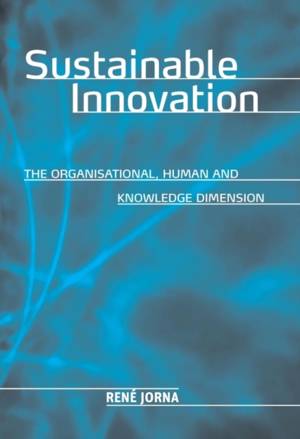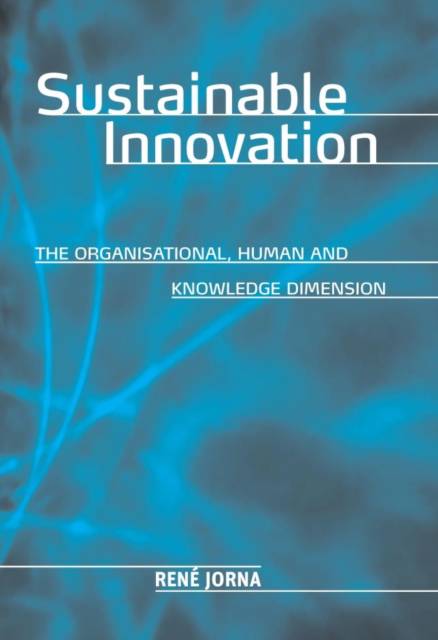
- Retrait gratuit dans votre magasin Club
- 7.000.000 titres dans notre catalogue
- Payer en toute sécurité
- Toujours un magasin près de chez vous
- Retrait gratuit dans votre magasin Club
- 7.000.0000 titres dans notre catalogue
- Payer en toute sécurité
- Toujours un magasin près de chez vous
Sustainable Innovation
The Organisational, Human and Knowledge Dimension
Livre relié | Anglais
305,45 €
+ 610 points
Description
HOW SUSTAINABLE IS INNOVATION? Problematically, most contemporary patterns of innovation in human social systems and organisations are not sustainable. This prevents people from learning effectively, from recognising and solving their problems, and from operating in sustainable ways. It is arguably why societies, businesses and industries around the world are so unsustainable. Sustainable innovation is a pattern of social learning and problem-solving that is, itself, sustainable. The sustainability of innovation, moreover, is linked to the sustainability of its outcomes, which manifest themselves in what people produce and do in the world. Sustainable innovation, then, is a necessary precondition for sustainability in how societies and organisations function - the ways they organise, the products and services they make, the energy and resources they use, and the wastes they produce. As challenges such as demographic pressures, ethnic tensions, terrorism, global poverty, pandemics and abrupt climate change force their way into mainstream politics and business, so we see growing interest in innovation, entrepreneurial solutions and, critically, issues such as how to ensure successful solutions replicate and scale. Sustainable Innovation aims to illustrate that shift. Instead of simply focusing on environmental and technological matters, it views and evaluates innovation-for-sustainability in terms of the human, social and management challenges and responses. It argues that a just, efficient and sustainable balancing of these elements is best achieved by the development of new knowledge, and by the evolution of better means both of embedding that emerging knowledge in organisations and institutions, and of managing the relevant flows of information, knowledge and wisdom. The book stresses that claims that a particular product, production process or service are sustainable usually assume that an appropriate balance has been achieved between people, planet and profit. However, calculating the sustainability of such things, let alone of complex systems such as enterprises or economies, can be impossible. Instead of "sustainability", the book favours the use of terms such as "making sustainable", emphasising that in dynamic operating environments organisational processes are changing constantly, whether or not they are under effective strategic control by management. Innovation, too, is dynamic by definition. Sustainable Innovation argues that there must be a constant focus on the triple bottom line of economic, social and environmental value creation during the innovation process. Sustainable innovation is a new challenge for organisations. It is a process that should permeate the whole organisation, in terms of its members, its tasks, its coordination mechanisms and its procedures. Waste or pollution should not be seen as the reason for further intervention downstream, but as an end-of-the-pipe effect, which could be organisationally cured upstream. Developed from the Dutch research programme "Knowledge Creation for Sustainable Innovation", this book presents empirical research and cases to develop a theory of sustainable innovation that is based on management of knowledge, knowledge and cognition and innovation approaches. Sustainable Innovation suggests that knowledge and innovation will be the key drivers of social and corporate sustainability in the years ahead. It will be essential reading for managers and researchers in areas such as sustainability, innovation, knowledge management and organisational learning.
Spécifications
Parties prenantes
- Editeur:
Contenu
- Nombre de pages :
- 372
- Langue:
- Anglais
Caractéristiques
- EAN:
- 9781874719991
- Date de parution :
- 01-10-06
- Format:
- Livre relié
- Format numérique:
- Genaaid
- Dimensions :
- 156 mm x 234 mm
- Poids :
- 716 g

Les avis
Nous publions uniquement les avis qui respectent les conditions requises. Consultez nos conditions pour les avis.





